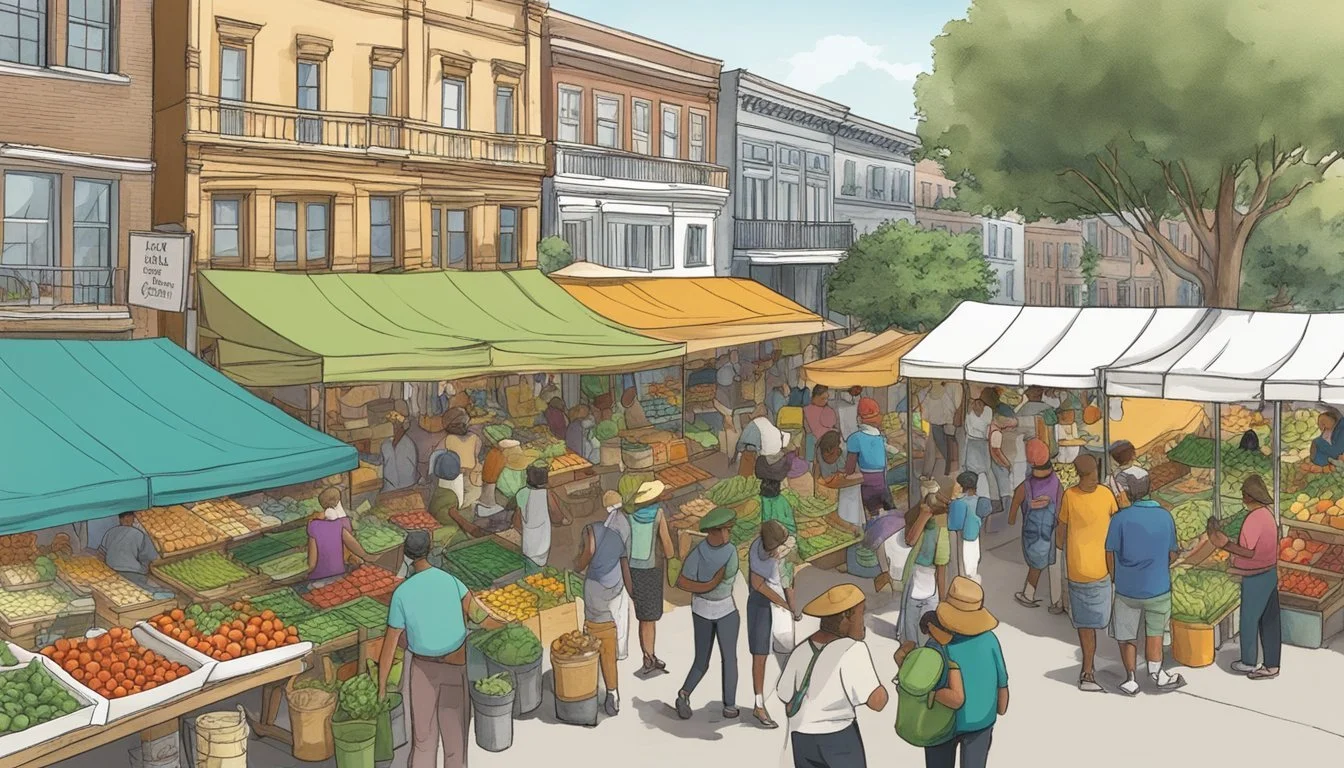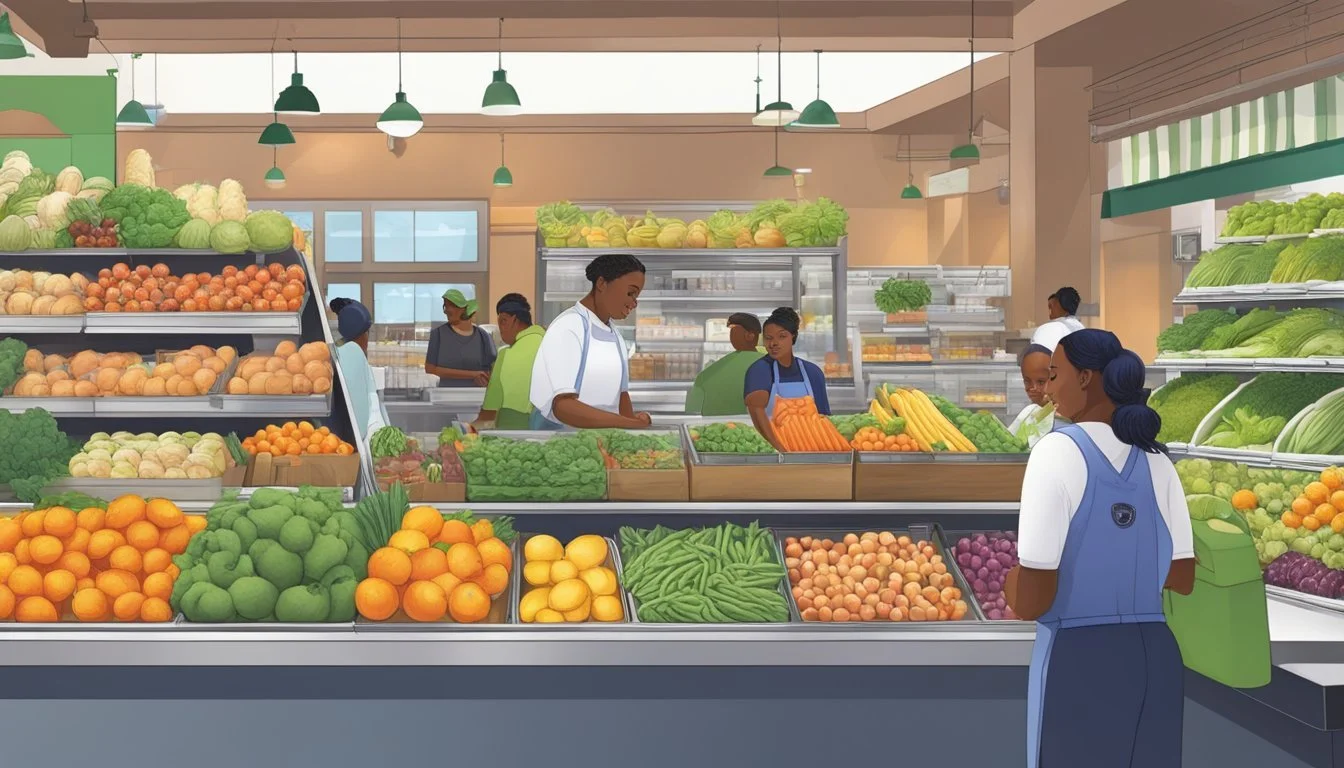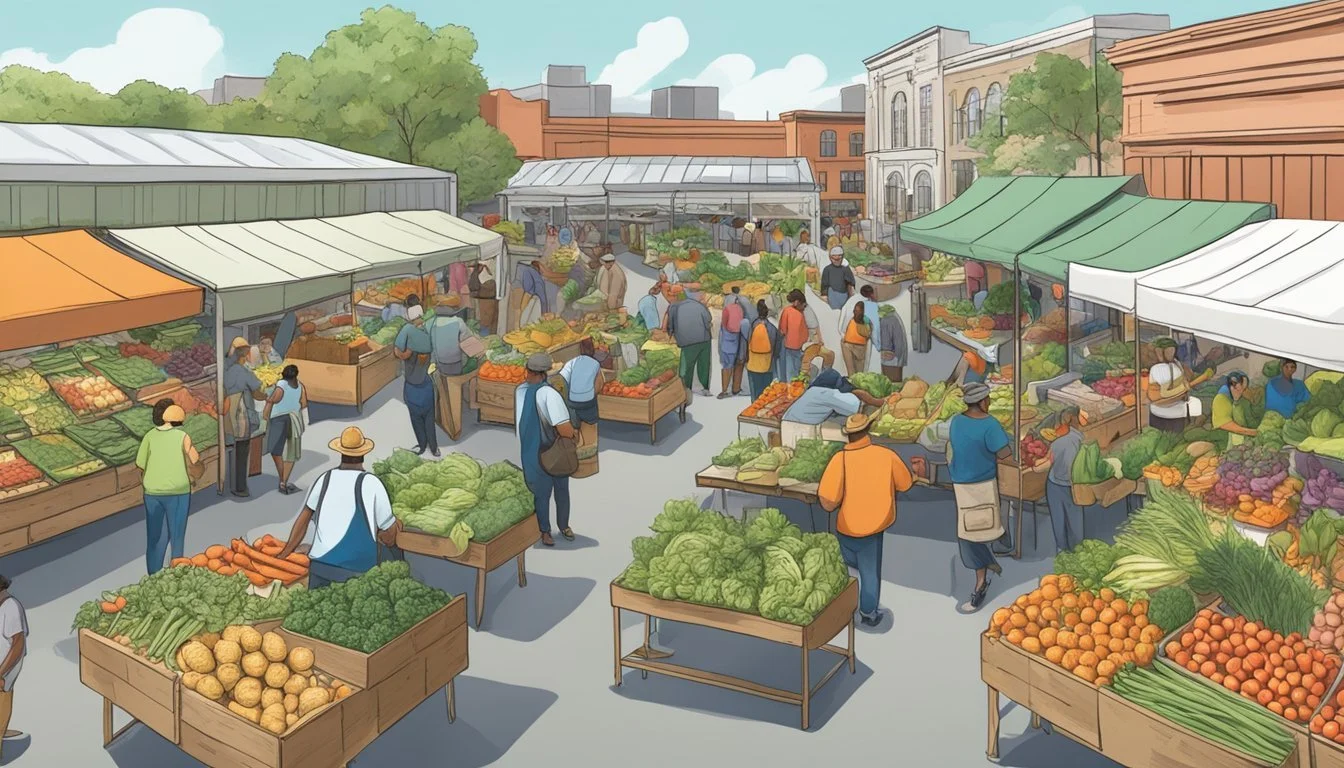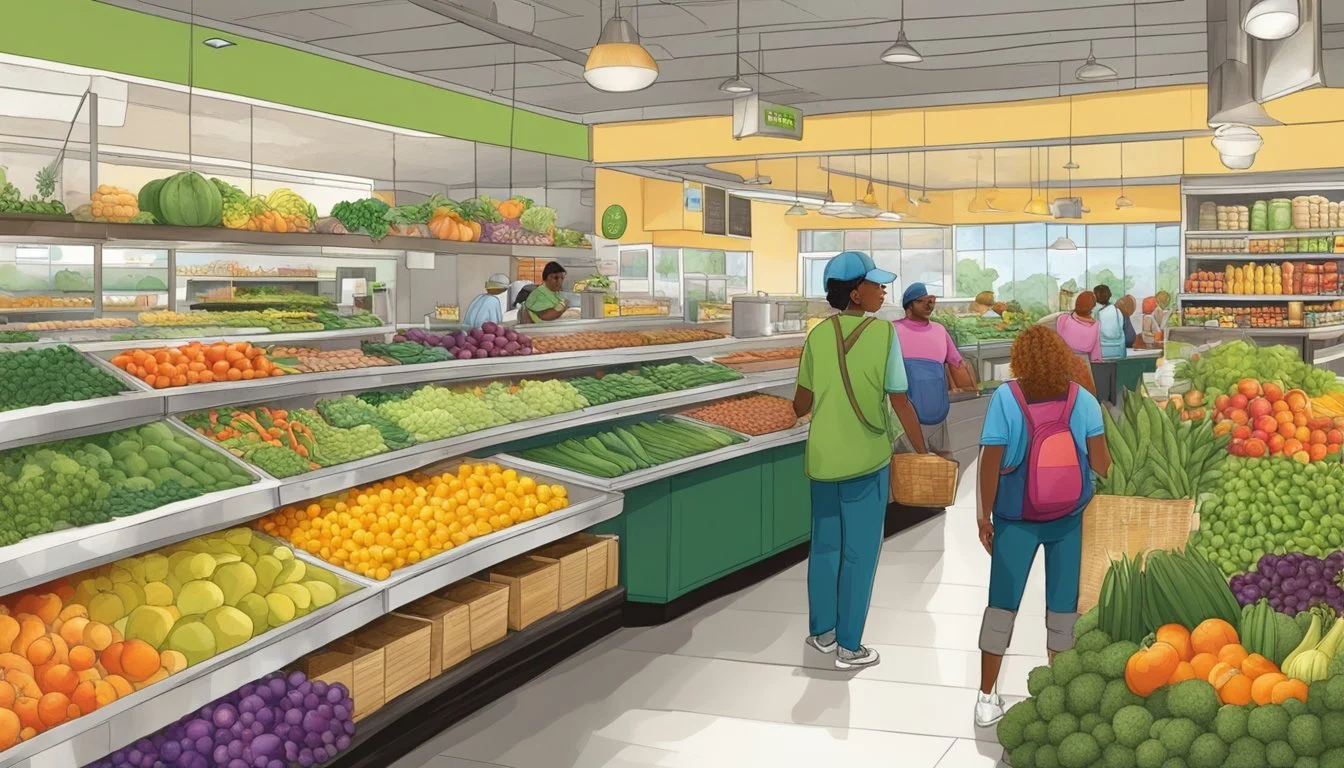Guide to Food Co-Ops in New Orleans, LA
Navigating Local Community Markets
Food cooperatives, commonly known as food co-ops, play a crucial role in New Orleans by providing residents access to healthy, locally sourced groceries. These member-owned businesses are more than just food retailers; they embody a commitment to community and a local food economy. Distinct from conventional supermarkets, New Orleans food co-ops prioritize a values-driven approach that supports not only the health of their customers but also that of the local food systems.
In New Orleans, LA, food co-ops are celebrated for their dedication to offering a wide range of all-natural and organic products that foster better health outcomes. They are open to the public every day, ensuring that healthy food options are consistently available. Through the cooperative model, they enable customers to have a say in the business, strengthening the bond between the co-op and the community it serves.
Strategically located in neighborhoods like the Marigny, food co-ops in New Orleans are not only convenient but also serve as a hub for community engagement and education about healthy eating habits. By emphasizing such connections, these co-ops contribute significantly to the city's vibrant culture, setting an example of how community-oriented businesses can make a positive impact.
What Is a Food Co-Op?
In New Orleans, a food co-op operates as a community-oriented grocery store, where member-ownership influences all aspects from sustainability practices to product selection.
Defining the Co-Op Model
A food co-op, short for cooperative, is a community-owned grocery retail model. In this model, ownership is equally distributed among its members, each possessing one share and one vote. This structure ensures that the co-op is 100% owned by community members, focusing on sourcing products from local farms and businesses to foster a sustainable food system.
The Cooperative Principles
Food co-ops are guided by internationally recognized principles which advocate for democratic control, economic participation, and community autonomy. They are committed to providing education and information about cooperation, supporting sustainable development, and ensuring fairness in their operations.
Voluntary and Open Membership
Democratic Member Control
Member Economic Participation
Autonomy and Independence
Education, Training, and Information
Cooperation Among Cooperatives
Concern for Community
Benefits of Food Co-Ops
Food co-ops present multiple benefits to their members and the local community. They prioritize sustainability in their operations, often supplying organic and locally produced food options. The democratic nature of co-ops provides members with a say in the business, from selecting stocked products to setting quality standards for goods and vendors. Additionally, they can influence fair pricing negotiations, contributing to the overall economic well-being of the community they serve.
Exploring the New Orleans Food Co-Op Landscape
The New Orleans food co-op scene is diverse and rooted in a rich history of community-led food access. These co-ops serve as hubs for local food sourcing and education in nutrition and sustainable practices.
History of Food Co-Ops in NOLA
The formation of food cooperatives in New Orleans can be traced back to grassroots initiatives that sought to address the need for accessible, healthy food options. The New Orleans Food Co-Op (NOFC) began its journey in 2002, focusing on community-driven solutions to these challenges. Officially opening its doors in 2011 at the Healing Center, NOFC emerged not only as a grocery destination but also a community center where local culture and wellness intersect.
Current Food Co-Ops in the Area
As it stands, the New Orleans Food Co-Op continues to be a cornerstone of the local food co-op landscape. Located at 2372 St. Claude Ave, NOFC maintains its dedication to:
Full-service, all-natural grocery selections
Community ownership that helps support local food systems
Educational efforts around nutrition and the importance of food choices
Operating seven days a week, this co-op is a product of direct investment from community members and is governed by democratic principles—where each shareholder gets an equal vote, exemplifying the power of collective ownership in driving sustainable food systems. The co-op not only prioritizes health but also strives towards bolstering the regional economy by focusing on local suppliers.
Healthy Eating and Food Co-Ops
Food co-ops in New Orleans are more than just grocery stores; they are a confluence of healthy eating habits and community education. They typically provide an array of fresh, nutritious products alongside education services aimed at promoting a healthy lifestyle.
Promoting a Healthy Lifestyle
Food co-ops prioritize health and wellness by ensuring the availability of fresh, wholesome, and minimally processed foods. These community-oriented stores focus on selling nutrient-rich produce, organic options, and all-natural products. In addition to providing healthy food choices, many co-ops in New Orleans also make these options more affordable, thereby supporting all individuals in the community to make healthier food choices.
Educational Services Offered
A variety of educational services are key features of food co-ops. They often host workshops, cooking classes, and nutritional seminars that empower community members with knowledge on:
Balanced diets
Meal planning
Sustainable food practices
By teaching members about the importance of local food systems and providing tools for maintaining a healthy diet, these co-ops serve as pivotal resources for ongoing community education and support.
Sourcing and Products
New Orleans food co-ops focus on providing a range of products that support local agriculture and promote health-conscious living. They prioritize fresh, organic, and minimally processed items.
Local and Organic Produce
Food co-ops in New Orleans establish strong connections with local farmers to source local and organic produce. Their shelves often feature a diverse array of fruits and vegetables, adhering to organic standards, which means they are grown without the use of synthetic pesticides or fertilizers.
Freshness: Co-op produce is known for being exceptionally fresh.
Supporting Local: By purchasing from local farms, co-ops invest back into the community.
Specialty Items and Groceries
Aside from produce, New Orleans co-ops offer an extensive selection of specialty groceries. These stores provide:
Bulk Items: Co-ops often feature bulk bins where shoppers can purchase grains, nuts, and other goods in the exact quantities they need, reducing waste.
Minimally Processed Foods: An emphasis is placed on whole foods with minimal processing.
Meat: Customers can find a variety of meats, with a focus on products from animals raised humanely and without antibiotics or growth hormones.
Membership and Ownership
Becoming an owner of a food cooperative in New Orleans is a way to invest in a community-based business that promotes local and regional food production while keeping capital and jobs within the community. Co-op membership equates to being a part-owner, which carries both financial and social responsibilities.
How to Become a Co-Op Owner
To become an owner of the New Orleans Food Co-op (NOFC), an investment is required. Here are the specifics:
Individual Membership: One-time payment of $100
Payment Plans: Available for those who need them
Process: Interested parties can join by mailing an application with their payment or through the co-op's website. Further queries can be directed to the co-op’s email or contact number.
Membership investments are essential for the success of the co-op and directly contribute to its financial stability.
Roles and Responsibilities
Ownership in a food co-op extends beyond financial contributions; owners are expected to engage with the business and community in various ways:
Supporting Community Activity: Owners help create a hub for community interaction and activity.
Influencing Business Decisions: Owners typically have a voice in business directions and decisions, reflecting the co-op's diverse community.
Environmental Responsibility: Participating in sustainable practices that contribute to the cooperative's environmental stewardship.
Co-op owners play a pivotal role in generating revenue for continual operation, influencing how the business serves the community, and ensuring accountability in managing the co-op's environmental footprint.
Economic and Environmental Impact
Food Co-ops in New Orleans, LA, play a pivotal role in fostering local economic development and advocating for environmental responsibility. They're not just grocery stores but also contribute significantly to the creation of a sustainable food system within the community.
Economic Benefits to the Local Community
Local and Regional Food Production: New Orleans Food Co-ops are instrumental in promoting local and regional food production, which keeps capital and jobs in the community. By sourcing produce and products from local producers, these co-ops directly support the city's agriculture, creating a robust market for small farmers and artisans. This results in a resilient local food economy where money spent at the co-ops circulates within the community, fostering further economic development.
Green Business Practices: As green businesses, food co-ops in New Orleans prioritize the community's economic welfare by providing access to healthy food at fair prices. They're not only retail spaces but also community hubs, known for fair employment practices and supporting local business ecosystems.
Environmental Responsibility and Sustainability
Environmental Responsibility: New Orleans Food Co-ops have a commitment to environmental responsibility, which is reflected in their operational practices. They ensure that waste is minimized through various sustainability initiatives like thorough recycling programs and reducing packaging waste.
Sustainable Food System: These co-ops strive to create a sustainable food system by offering products that are not only environmentally friendly but also sustainably produced. This means prioritizing organic and non-GMO foods, supporting agriculture that is conscious of its environmental impact, and advocating for practices that contribute to the health of the planet.
By maintaining these principles, New Orleans Food Co-ops are at the forefront of the movement toward a more economically sound and ecologically sustainable future.
Additional Services and Features
The New Orleans Food Co-Ops offer more than just grocery items; they provide a variety of services and features that cater to the community's needs. From convenient meal options to wellness products and educational events, the co-ops enhance the shopping experience with value-added offerings.
Deli and Grab-and-Go Meals
Food Co-Ops in New Orleans boast a deli section where shoppers can find a selection of freshly prepared foods. The availability of grab-and-go meals makes it easy for customers to pick up healthy and quick options on the run.
Deli Offerings: featuring local ingredients and catering to diverse tastes
Grab-and-Go Options: including salads, sandwiches, and hot meals for convenience
Health and Wellness Products
The co-ops not only focus on food but also provide a range of health and wellness products. Shelves are stocked with supplements and natural body care items, supporting the overall well-being of their patrons.
Supplements: offering vitamins and natural health products
Body Care: with a variety of natural and organic personal care items
Educational Workshops and Events
Education is a cornerstone of the co-op ethos. They organize workshops and events focused on food, health, and sustainability, helping to educate the community and enhance their knowledge about healthy living and environmental responsibility.
Educational Workshops: covering topics like nutrition, cooking, and food sourcing
Community Events: encouraging engagement and learning within a supportive setting






